Bankruptcies allow you to repay your debts, restructure your finances, and aim for debt settlement. According to the Fair Credit Reporting Act, a bankruptcy can stay on a credit report for a maximum of ten years depending on the type of bankruptcy that you have filed. Chapter 7 bankruptcy will stay on your credit history for full ten years, while Chapter 13 bankruptcy will remain for not more than seven years since it involves repayment of some of your outstanding debts. Bankruptcy can hurt your credit score; however, its impact will gradually fade with time.
Your next goal is to focus on repairing and improving your credit score. This number indicates a consumer’s creditworthiness. This is measured based on your credit history including the number of existing bank accounts, total amount of debts, or repayment history. Banks, credit card companies, or credit institutions consider your credit score to assess your ability to pay off debts.
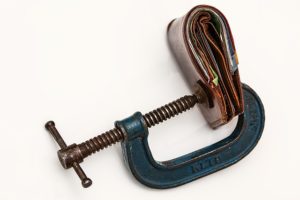 If you want to improve your credit score, the first thing that you need to do is to create a budget. You have to check your monthly income, living expenses, and other bills to help you assess your current financial situation. Budgeting will help you make necessary adjustments to your finances and spending habits. During the bankruptcy process, you have taken credit counseling sessions that should have taught you basic information about budgeting. It is important to pay your bills on time. A consistent record of your on-time debt payments will help you improve your credit score.
If you want to improve your credit score, the first thing that you need to do is to create a budget. You have to check your monthly income, living expenses, and other bills to help you assess your current financial situation. Budgeting will help you make necessary adjustments to your finances and spending habits. During the bankruptcy process, you have taken credit counseling sessions that should have taught you basic information about budgeting. It is important to pay your bills on time. A consistent record of your on-time debt payments will help you improve your credit score.
There are several ways on how to help you rebuild your credit. The first thing that you must do is ensure that your credit report is accurate and free from errors. The Fair Credit Reporting Act allows you to obtain a free copy of your credit report once every twelve months from the three major credit reporting bureaus. A qualified Jackson bankruptcy lawyer can help you review and check your credit report.
It is highly recommended to keep your existing or long-time credit card accounts open. Maintaining these accounts can help you reestablish your credit history. It is advisable to avoid the use of debit cards since it will not help you fix your credit score.
Adding positive personal information on your credit report (such as employment details) can help you prove that you are financially stable. Your eligibility to get a credit or loan in the future is not just based on the reported accounts on your credit history, but also on your assets and stability.
Keeping a credit utilization ratio lower than 30% will help you raise your credit score. Credit utilization is the ratio of your outstanding credit card balance to your credit limit.
If you have no credit card yet, it is advisable to get one. Regular usage of a new credit card can help you achieve a better credit score. One of the factors that affect your credit score is the length of your credit history. A new credit account will lessen the usual length of credit history and will help you improve your score. Do not get a new credit card if you already have multiple credit accounts because it will only harm your credit score.
If you failed to meet the requirements for an ordinary credit card, you may consider applying for a secured card. Before applying for this type of credit card, you need to check if the card issuer reports to the credit reporting agencies. If you will use a secured credit card, you need to deposit money to a bank or credit union, then acquire a credit card with a limit for a certain percentage of your deposited amount. It is recommended to seek legal advice from a reliable Jackson bankruptcy attorney before you get any new credit account.
Another option to help you improve your credit rating is to get a “credit-builder loan”. This type of loan is also known as “Starting Over Loans” or “Fresh Start Loans” being offered by community banks and some credit unions. It is designed mainly to help build good credit. To apply for this loan, you need to fill out and submit your application form, then wait for approval. Once approved, the lender will deposit the loan money into a savings account. You will not be able to utilize this fund, instead, you have to give payments to the credit-builder loan for a period of 12, 18, or 24 months. The lenders will report your payment history to the credit reporting bureaus. You can only get your money after you pay off your loan.
You may also choose to consider applying for a vehicle or auto loan (only if you do not have one) to help you increase your credit scores. You start to establish a good payment history as you make full payments on time. Having various types of credit, including both installment and revolving credit accounts, is considered a factor in determining credit scoring. If you do not have any of these loans yet, then acquiring a car loan can improve your credit profile.
Rebuilding credit entails a lot of hard work, perseverance, and patience. Before you apply for a new loan or credit, you have to make sure that you are financially prepared. For legal assistance in rebuilding your credit, do not hesitate to consult our competent Jackson bankruptcy attorneys at Rollins Law Firm. We will help you choose the best credit repair strategies that will fix your credit and get a good credit score after your bankruptcy.

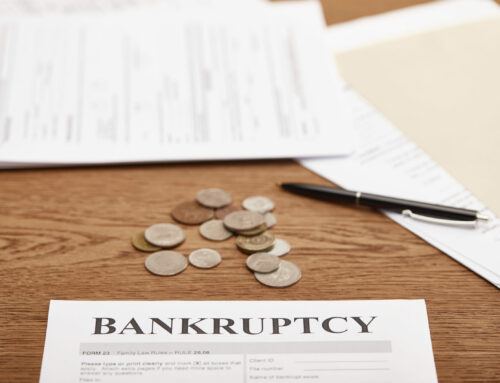
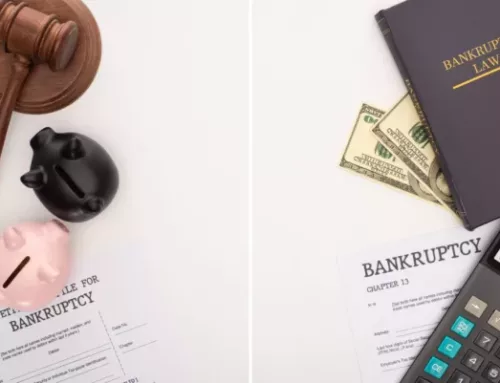
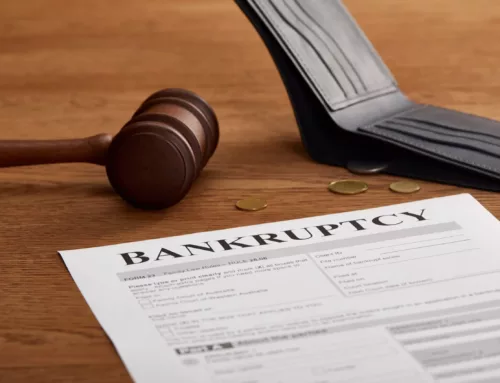


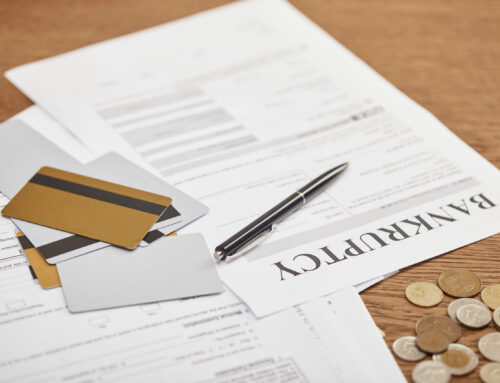

Connect with Us